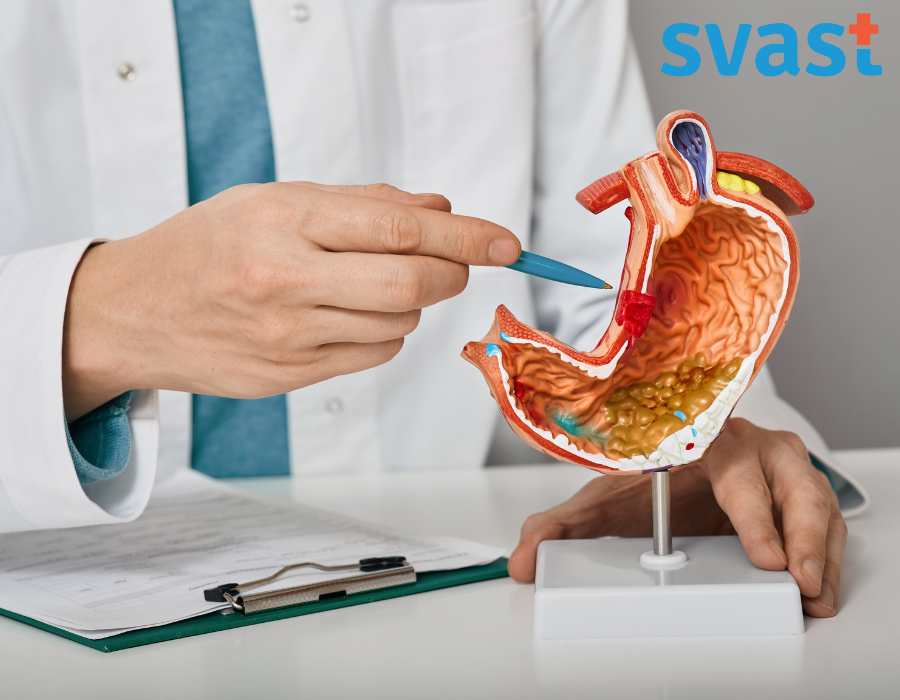Essential Billing Codes for Gastroenterology Practices

Introduction
Gastroenterology is a highly specialized field that deals with complex procedures, from diagnostic colonoscopies to advanced endoscopic surgeries. While the clinical side is intricate, the administrative side—gastroenterology billing and coding—is just as demanding. Correctly assigning CPT and ICD-10 codes is crucial to ensure accurate reimbursement, avoid denials, and maintain the financial health of a practice.
This blog provides a comprehensive guide to the most commonly used GI codes, explains how modifiers and medical necessity impact claims, and outlines best practices to strengthen your revenue cycle.
Common Gastroenterology CPT Codes
CPT (Current Procedural Terminology) codes are the backbone of billing for procedures performed in GI practices. Using the wrong CPT code can lead to underpayments or outright denials. Below are the most frequently billed codes in gastroenterology:
Upper GI Endoscopy (EGD) Codes
- 43235 – Diagnostic EGD, including brushing or washing
- 43239 – EGD with biopsy
- 43251 – EGD with removal of tumor, polyp, or lesion using a snare
- 43247 – EGD with removal of foreign body
Lower GI Procedures (Colonoscopy & Sigmoidoscopy)
- 45378 – Diagnostic colonoscopy (without biopsy)
- 45380 – Colonoscopy with biopsy
- 45385 – Colonoscopy with polyp removal via snare technique
- 45330 – Flexible sigmoidoscopy, diagnostic
- 45331 – Sigmoidoscopy with biopsy
These codes cover the most common procedures but mastering them is not just about memorization. Documentation must align with coding to avoid mismatches that trigger payer denials.
Key ICD-10 Diagnosis Codes in GI Practices
For every CPT code, there must be a corresponding ICD-10 diagnosis code that supports medical necessity. Without this, even the most accurate procedure code may be denied.
- K21.9 – Gastroesophageal reflux disease (GERD) without esophagitis
- K58.0 – Irritable bowel syndrome with diarrhea
- K50.10 – Crohn’s disease of large intestine without complications
- K76.0 – Fatty liver disease
- R10.10 – Upper abdominal pain, unspecified
- R19.7 – Diarrhea, unspecified
- D12.8 – Benign neoplasm of rectum
- C18.9 – Malignant neoplasm of colon, unspecified
- K63.82 – Intestinal microbial overgrowth (SIBO)
These ICD-10 codes are essential for validating why a procedure was performed, thereby reducing the likelihood of claim rejections.
The Role of Modifiers in GI Billing
Modifiers provide additional details about procedures, ensuring that payers understand the full scope of services delivered. In gastroenterology billing, commonly used modifiers include:
- Modifier 26 – Professional component only
- Modifier TC – Technical component only
- Modifier 50 – Bilateral procedures
- Modifier 59 – Distinct procedural service (often used to avoid bundling issues)
Correct usage of modifiers prevents under-coding, duplicate claim issues, and payer confusion. For GI practices where multiple procedures are performed during the same visit, modifiers are vital for accuracy.
Common Challenges in Gastroenterology Billing
Even when codes are accurate, GI billing teams face unique obstacles:
- High claim denial rates – Often due to mismatched CPT/ICD codes or lack of medical necessity documentation.
- Prior authorization delays – Especially for procedures like capsule endoscopy or advanced imaging.
- Frequent coding updates – GI is a dynamic specialty, and codes are often revised annually.
- Time-consuming appeals – Denied claims require significant staff resources to reprocess.
Without proper systems in place, these challenges can result in lost revenue and reduced cash flow.
Best Practices to Improve Accuracy & Efficiency
To overcome these challenges, GI practices should adopt a structured approach to billing:
- Regular Coding Training – Ensure staff remain updated on CPT/ICD revisions.
- Leverage Technology – Use AI-driven coding assistance and automated claim scrubbers.
- Documentation Audits – Periodically review physician notes to ensure they support billed codes.
- Track Denial Trends – Monitor frequent denial reasons and adjust workflows accordingly.
- Partner with RCM Experts – Outsourcing gastroenterology billing can significantly reduce administrative burdens.
Implementing these practices can reduce denials, shorten revenue cycles, and maximize reimbursement.
Future of Gastroenterology Billing: AI & Automation
As payers tighten regulations, technology is becoming the key differentiator. AI-powered billing tools can auto-suggest codes, flag mismatches, and even predict denial risks before submission. Automated workflows for prior authorization and denial management are also reshaping the way GI practices handle revenue cycles.
Practices that embrace automation will not only stay compliant but also unlock faster reimbursements and higher efficiency.
Conclusion
Gastroenterology billing is both complex and high-stakes. Mastering the right CPT and ICD-10 codes, applying modifiers correctly, and adopting modern billing practices are essential to ensuring steady cash flow. By combining accurate coding, strong documentation, and advanced automation, GI practices can transform their revenue cycle from a constant challenge into a sustainable strength.
If your practice is struggling with denials or wants to streamline billing operations, partnering with an experienced RCM provider can make all the difference. Svast Healthcare Technologies is a Medical Billing & RCM Services company based in Brentwood, TN, specializing in helping healthcare providers simplify billing, reduce denials, and optimize collections.
Stop Losing Revenue!
Download "The Ultimate Guide to Crushing Medical Billing Denials for Healthcare Practices" and take control of your revenue!
Plus, get access to all essential resources for your practice.
Download NowTrusted RCM and billing partner for physician practices and hospitals. Billed $1B+ over past 20 years for 100+ clients.



